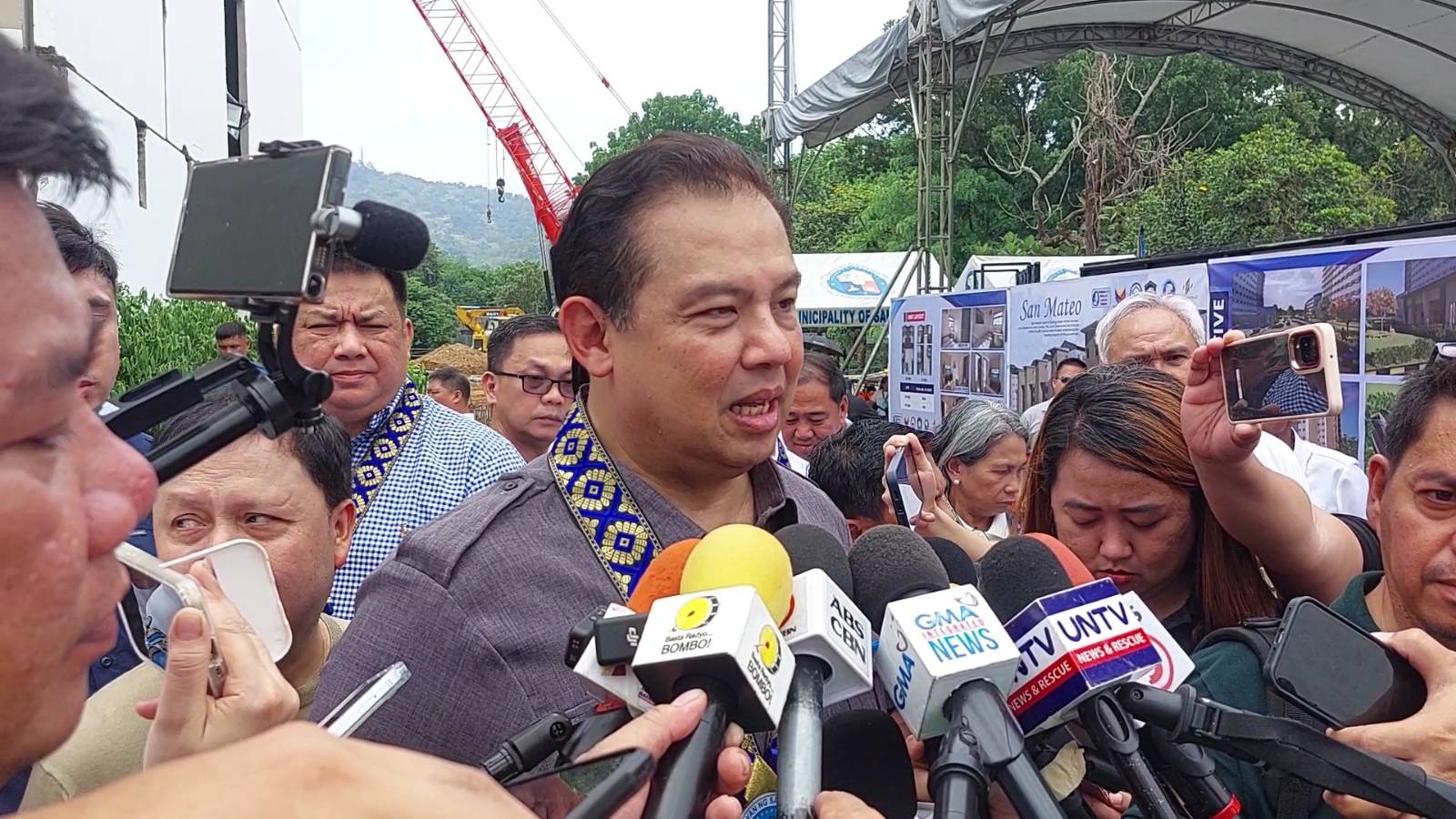'Umikot muna kayo': Romualdez tells senators to touch base with Pinoys to appreciate AKAP
At A Glance
- House Speaker Martin Romualdez believes that the Senate lacks appreciation for the Ayuda sa Kapos ang Kita Program (AKAP) because they don't interact much with people on the ground.
 House Speaker Martin Romualdez (Ellson Quismorio/ MANILA BULLETIN)
House Speaker Martin Romualdez (Ellson Quismorio/ MANILA BULLETIN)
LEGAZPI, Albay--House Speaker Martin Romualdez believes that the Senate lacks appreciation for the Ayuda sa Kapos ang Kita Program (AKAP) because they don't interact much with people on the ground.
As such, Romualdez dared the senators to go out from time to time and get the pulse of Filipinos.
"Nadidinig po natin ‘yong iba sa Senado, hindi yata nakaka-intindi yata kasi hindi yata sila bumababa masyado," the leader of the 300-plus strong House of Representatives said in a chance interview here Thursday, Nov. 22.
(We've heard others from the Senate, they don't seem to understand it because they don't go to the ground much.)
"Kaya sasabihin ko na sa ating mga kaibigan natin sa Senado, umikot na lang muna kayo at tanungin niyo muna sa taumbayan kung ano’ng gusto nila. At sa nakikita ko po, sa lahat ng pinupuntahan natin, gustong-gusto at napakabuti nitong programang ito," Romualdez said of AKAP
(That's why I tell my friends at the Senate, make rounds in the public and ask the people what they want. And from what I see, at every place that we go to, they really like this laudable program.)
Romualdez gave these remarks following reports that the Senate defunded AKAP in its version of the P6.352-trillion General Appropriations Bill (GAB) for 2025.
Earlier, the House leader vowed to secure the funding for the program for next year’s budget for the benefit of more than four million “near poor” Filipinos nationwide.
AKAP, conceptualized under the leadership of Romualdez, has been instrumental in supporting working families with insufficient income.
It provides a one-time cash assistance of P3,000 to P5,000 to qualified beneficiaries whose incomes fall below the poverty threshold and who are not covered by other government aid programs.
Lifeline for Pinoy families
“AKAP is not just a safety net; it is a lifeline for millions of Filipino families teetering on the edge of poverty. This initiative has proven its value by providing immediate relief to struggling households, empowering them to weather economic challenges, and ensuring their resilience against inflation and other shocks," explained Romualdez.
He says AKAP’s impact is evident in its extensive reach, with P20.7 billion of the P26.7 billion allocated for the program already utilized. This has benefitted millions across all regions, including over 589,000 families in the National Capital Region (NCR) alone.
Regions like Central Luzon, Bicol, and Western Visayas have also achieved significant fund utilization rates exceeding 70 percent.
“Programs like AKAP demonstrate what effective government intervention looks like. It stabilizes households, strengthens communities, and contributes to the country’s overall economic resilience. Cutting its funding would be a disservice to the millions who rely on this vital assistance,” he emphasized.
No AKAP, no safety net--Co
House Committee on Appropriations Chairman Ako Bicol Party-list Rep. Zaldy Co echoed Romualdez's determination in preserving the funds for AKAP next year.
“We can't allow the administration’s most vital socialized program to disappear,” Co said in a statement Friday, Nov. 22.
“Until these families earn at least P45,000 per person monthly, AKAP remains essential. If we can’t provide proper wages, this program is the right form of support to shield them from high prices and economic hardship," he said.
Co also expressed disappointment over the Senate’s decision to remove the P39-billion funding, which Senators Grace Poe and Imee Marcos proposed.
“Without AKAP, families living paycheck-to-paycheck will have no safety net for emergencies, such as illness, death in the family, or natural disasters,” warned the Bicolano.
He noted that the recent aid distributions targeting mall workers across the country displayed the widespread acceptance and support for the project.